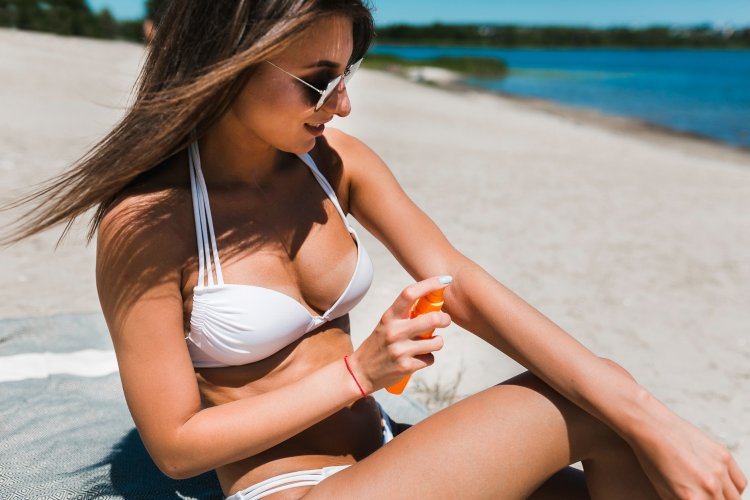Choosing the Right Sunscreen and Understanding SPF: A Comprehensive Guide
Sunscreen is a critical component of daily skincare, essential for protecting our skin from the harmful effects of ultraviolet (UV) radiation. With the vast array of sunscreens available on the market, selecting the right one can be overwhelming. This guide aims to demystify the process by explaining the significance of SPF, the types of sunscreens, and other crucial factors to consider.

What is SPF?
SPF, or Sun Protection Factor, is a measure of a sunscreen’s ability to protect the skin from UVB rays, the main cause of sunburn and a significant contributor to skin cancer. The SPF number indicates how much longer it would take for UVB rays to redden the skin with sunscreen compared to without it. For example, if you use an SPF 30 sunscreen, it would take 30 times longer for your skin to burn than if you weren't wearing any sunscreen.
How SPF Works
- SPF 15: Blocks about 93% of UVB rays.
- SPF 30: Blocks about 97% of UVB rays.
- SPF 50: Blocks about 98% of UVB rays.
No sunscreen can block 100% of UVB rays, and higher SPFs provide slightly more protection. However, higher SPF values can sometimes give a false sense of security, leading to inadequate application and less frequent reapplication.
Types of Sunscreens
Sunscreens are broadly categorized into two types: chemical and physical (mineral).
Chemical Sunscreens
Chemical sunscreens contain organic (carbon-based) compounds that absorb UV radiation and convert it into heat, which is then released from the skin. Common ingredients include:
- Oxybenzone
- Avobenzone
- Octinoxate
- Octocrylene
Pros:
- Lightweight and easy to apply
- Less visible on the skin
Cons:
- May cause skin irritation or allergic reactions
- Some ingredients can harm coral reefs
Physical (Mineral) Sunscreens
Physical sunscreens contain inorganic compounds like zinc oxide and titanium dioxide, which sit on the skin’s surface and physically block and reflect UV radiation.
Pros:
- Less likely to cause skin irritation
- Provide broad-spectrum protection
- Start working immediately upon application
Cons:
- Can be thicker and more visible on the skin
- May leave a white cast, especially on darker skin tones
Understanding Broad-Spectrum Protection
Broad-spectrum sunscreens protect against both UVA and UVB rays. While UVB rays are the primary cause of sunburn, UVA rays penetrate deeper into the skin and contribute to premature aging and skin cancer. Broad-spectrum protection is essential for comprehensive skin safety.
Factors to Consider When Choosing a Sunscreen
SPF Level
The American Academy of Dermatology recommends using a sunscreen with at least SPF 30 for effective protection. Higher SPF levels offer more protection, but it’s crucial to apply sunscreen generously and reapply frequently.
Skin Type
- Oily Skin: Choose oil-free, non-comedogenic formulas to avoid clogged pores.
- Dry Skin: Opt for sunscreens with added moisturizers like hyaluronic acid or glycerin.
- Sensitive Skin: Select physical sunscreens with soothing ingredients like aloe vera or chamomile.
Activity Level
For activities involving water or excessive sweating, choose a water-resistant sunscreen. Water-resistant sunscreens remain effective for 40 to 80 minutes of swimming or sweating. Reapplication is necessary after towel drying, swimming, or sweating.
Formulation
Sunscreens come in various formulations, including lotions, gels, sprays, and sticks. Each type has its advantages:
- Lotions: Provide thorough coverage and hydration.
- Gels: Suitable for oily skin and hairy areas like the scalp.
- Sprays: Convenient for quick application, but ensure even coverage.
- Sticks: Ideal for targeted areas like the face and ears.
Ingredients
Avoid sunscreens with potentially harmful ingredients such as oxybenzone and octinoxate, which can cause allergic reactions and damage coral reefs. Look for sunscreens with added antioxidants to provide extra protection against free radicals.
Proper Application of Sunscreen
To ensure maximum protection, follow these guidelines:
- Apply Generously: Use about one ounce (a shot glass full) to cover the entire body. Don’t skimp on sunscreen; most people apply too little.
- Apply Before Sun Exposure: Apply sunscreen 15 to 30 minutes before going outside to allow it to absorb into the skin.
- Reapply Regularly: Reapply every two hours, or more often if swimming or sweating.
- Don’t Forget Key Areas: Cover often-missed spots such as the ears, neck, feet, and the back of the knees.
- Layering: Apply sunscreen first, then makeup or insect repellent.
Myths and Misconceptions
- "A Higher SPF Means You Can Stay in the Sun Longer": While higher SPF provides more protection, it doesn’t mean you can stay out indefinitely without reapplying. Always follow the reapplication guidelines regardless of the SPF level.
- "You Don’t Need Sunscreen on Cloudy Days": Up to 80% of UV rays can penetrate clouds, making sunscreen necessary even on overcast days.
- "Dark Skin Doesn’t Need Sunscreen": All skin types can suffer damage from UV rays. Everyone, regardless of skin tone, should use sunscreen to prevent skin cancer and premature aging.
Choosing the right sunscreen involves understanding SPF, considering your skin type, and selecting a product that fits your lifestyle and activities. By applying sunscreen correctly and regularly, you can significantly reduce the risk of sunburn, premature aging, and skin cancer. Protecting your skin from the sun is a crucial step in maintaining overall skin health.
Disclaimer
The information provided in this article is for educational purposes only and should not be considered medical advice. If you have any health concerns or are experiencing symptoms, it is important to consult with a healthcare professional, such as a doctor or clinic, for proper diagnosis and treatment. Always seek the advice of your doctor or other qualified health provider with any questions you may have regarding a medical condition. Do not disregard professional medical advice or delay in seeking it because of something you have read in this article.
#Hashtags: #SPF #SunProtection #Sunscreen #SkinCare #BroadSpectrum #ChemicalSunscreens #PhysicalSunscreens #UVA #UVB #SkinHealth #SunSafety
What's Your Reaction?





















